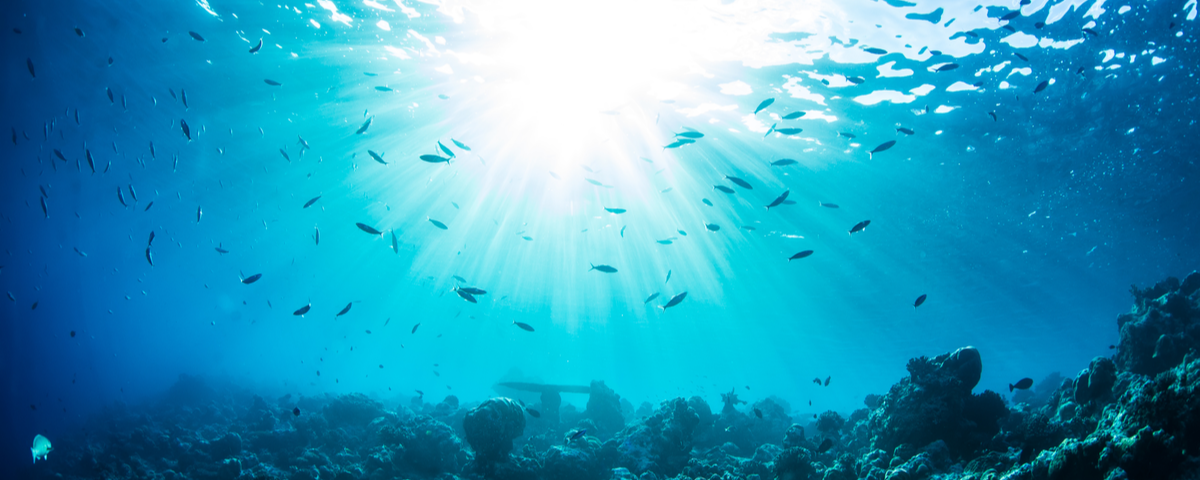Although as an industry we may be focussed on more current crises like COVID, for which we are coming up with innovative solutions already, we must not forget the pressing threat that climate change poses for our planet.
In March 2021, a shocking phenomenon happened. I am not talking about another riot in the United States Capitol or a new Coronavirus wave worldwide. The disruption this article is all about refers to a documentary. Specifically, a production filmed by Netflix and whose name is ‘Seaspiracy’. I am pretty sure that this tittle has come to you either through your Netflix’s notifications or simply it has popped up in a conversation with your co-workers. The documentary sheds light onto the global fishing industry and how it impacts the oceans and their sea life, covering different threats like plastic pollution or carbon emissions. Therefore, ‘Seaspiracy’ explores key issues that endanger the sustainability of sectors like travel and tourism while issuing a global call to action.
According to evidence shown in this production, fishing is the major threat to marine wildlife as around 300,000 dolphins and whales are killed by fishing operations every year. Besides, the documentary states that the fishing industry has decimated around 90% of the world’s large fish. On the other hand, some of this data along with further information about additional impacts like plastic pollution were questioned by experts after the documentary was released. Anyway, the magnitude and influence of these disruptions over the environment worldwide is unquestionable.
The travel industry cannot take a passive approach towards this situation. The race to achieve sustainable tourism practices across the world includes taking actions like protecting natural environments, wildlife, and resources. Productions such as ‘Seaspiracy’ reveal several issues that jeopardize the aim of increasing the industry’s benefits while reducing its negative impacts. In this case, uncontrolled fishing operations have the potential to destroy the efforts done by tourist destinations whose survival depends on protecting the oceans and sea life.
From environmentally friendly diving in Bali to yoga retreats in the rainforests of Costa Rica, tourism experiences keep embracing environmentalism in order to take care of the natural resources that make the travels of millions of people unforgettable and that provide the tools for local communities to thrive all over the world. In fact, ecotourism has turned into one of the main tools for developing sustainable travel due to its preventive and corrective role. This can be observed on the demand side, with more and more people deciding to go into purposeful trips to transform their travel habits and, at the same time, make a positive contribution to local businesses, as well as to their natural environment and cultural heritage.
‘Seaspiracy’ goes beyond just pointing out the impacts of global fishing and it states some measures that would help to protect the oceans and therefore, the communities that depend on them. The documentary gives three different big actions that, if taken, will shape both societies and economic powers. Firstly, the production reveals the importance of shifting to a plant-based diet that does not rely on animal agriculture. By adopting this habit, the exploitation of natural resources would be reduced as well as the pollution and waste created by the current levels of fishing and hunting. Additionally, a mass adoption of plant-based diets would help to achieve other desirable goal such as preventing species extinction, helping mitigate climate change, and increasing health.
The second measure recommended by the documentary’s team is enforcing no-catch marine reserves which are thought to protect 30% of the oceans by 2030. Parallel to this, the third action to be taken, in agreement with ‘Seaspiracy’, is to reduce fishing subsidies which account for $35 billion annually. Out of the three measures stated in the documentary, these last two seem to be the more achievable ones, yet they are ambitious goals that will not be achieved easily taking into consideration the resistance of several fishing’s stakeholders shown in the Netflix’s production.
During the 90 minutes of the documentary, we can see scenes that show disturbing and tough moments like reporters showing safety concerns for informing about illegal fishing practices, dozens of dolphins and other species being brutally slaughtered, and even some people involved in the fishing business threatening the filming team. Besides, although maybe not as visually stunning as the aforementioned, ‘Seaspiracy’ shows images of beaches’ shores infested with plastics of all sizes and shapes as well as coral reefs damaged by waste that includes fishing line and nets. Altogether, the documentary tells that there is definitely something wrong with the way that we are treating our oceans.
Tourism needs to keep acting as a driver of sustainability and opportunity. All the issues highlighted in ‘Seaspiracy’ (species extinction, exploitation of natural resources, proliferation of ocean plastic…) have the potential to destroy what the travel sector and most of its stakeholders have been fighting for since decades. Without clean oceans there is no life, that is the theme that our industry should extract from this documentary. Yet the conclusions taken from ‘Seaspiracy’ do not have to be used to spread fear but to rise up and keep meeting the challenge of fighting climate change even with more determination than before. There are many destinations that set the example of how to adopt and develop responsible tourism, and day after day more companies keep switching their operations to eco-friendly ways of doing business. We may be focussed on more current crises like COVID, for which we are coming up with innovative solutions already, yet we must not forget the pressing threat that climate change poses for our planet.


